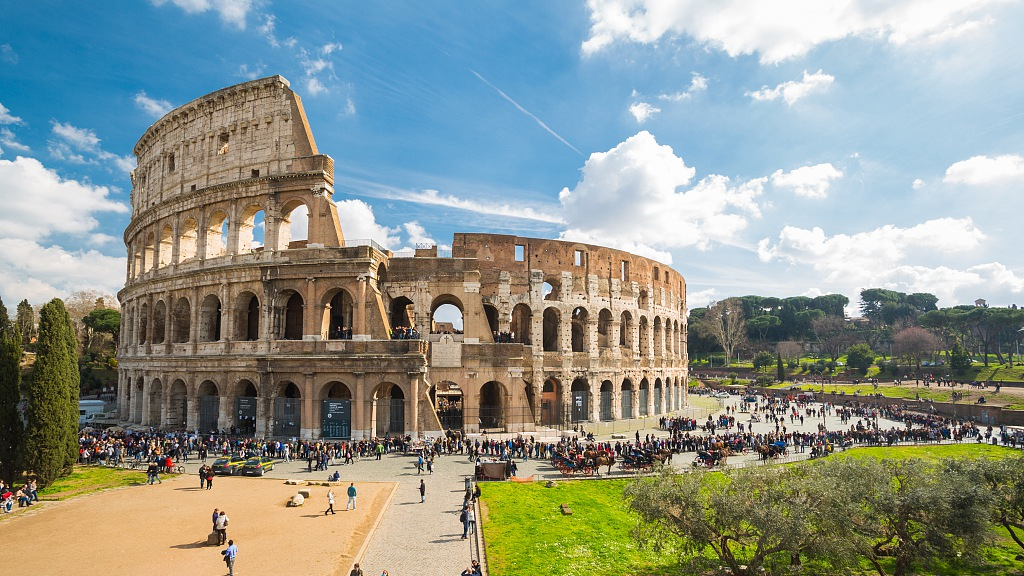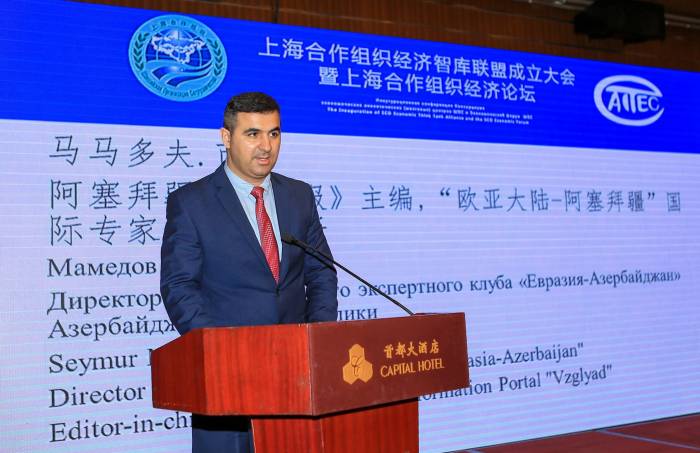Opinion: Why does Italy prefer China over Europe?

Editor's note: Seymur Mammadov is the director of the international expert club called "EurAsiaAz" and editor-in-chief of the Azerbaijani news agency Vzglyad.az. The article reflects the author's opinion, and not necessarily the views of CGTN.
On March 21, Chinese President Xi Jinping arrived in Rome for a state visit to Italy. On March 23, Xi met with Italian Prime Minister Giuseppe Conte. During their meeting, they exchanged views on bilateral relations, international and regional issues. On the same day, they witnessed the signing of a memorandum of understanding to advance the construction of the Belt and Road, which makes Italy become the first G7 country that joins China's Belt and Road Initiative (BRI).
What does it mean? Let's try to figure out Italy's rapprochement to China against the backdrop of international pressure.
The first reason is the attractiveness of the BRI. This project, which in past times caused concern in many countries, now gains much sympathy in Eurasia, Africa, Latin America, and the Middle East. Why? Because the countries participating in the project benefit from the cooperation with China in the framework of this initiative.
How? Thanks to the Chinese initiative, trade and investment procedures have been simplified, the business climate has improved, and free trade zones have been created. Let me remind you that from 2013 to 2017, China's total trade with countries participating in the BRI exceeded 5 trillion U.S. dollars, while China's direct investment in these countries amounted to about 70 billion U.S dollars, 75 economic cooperation zones were built, more than 220 thousand new jobs were opened. Today we see significant progress, new opportunities, and all this has become possible thanks to the Chinese initiative.
The initiative not only had a positive impact on China's neighbors – Russia, Kazakhstan – but also countries that are located far from China. For example, 2018 became a historic year in the trade history of Moscow and Beijing: For the first time in 12 years, Russian exports to China exceeded imports. The trade turnover between Russia and China soared by 27.1 percent, exceeding 107 billion U.S. dollars. At the same time, in terms of growth, Russia ranked first among China's key partners.
The BRI provided the countries of Eurasia with a new impetus to strengthen economic cooperation among them. For example, Kazakhstan put forward a state program that has become an essential element in the implementation of the BRI. The result: a steady increase in the trade volume between Kazakhstan, China, and other countries, the opening of new transport corridors, the growth of investment flows, and the launch of new industrial and infrastructure facilities.
İn turn, Azerbaijan, which is an important country along the new Silk Road, actively supports and participates in the initiative of joint construction of BRI projects. In April 2015, Azerbaijan became an Asian Infrastructure Investment Bank (AIIB) founding member. In March 2016, it became a dialogue partner of the Shanghai Cooperation Organization. The document boosted the development of Chinese-Azerbaijani relations in the economic and trade spheres. If in 1992, bilateral trade amounted to 1.5 million U.S. dollars, the figure reached 1.298 billion U.S. dollars in 2017 – a multiplication of over 800 times.
The list of countries that have significantly benefited from cooperation with China can be continued. We see that the Chinese initiative was able to overcome all obstacles to reach a new level of development. In Italy, they see its potential; they see how the initiative is developing rapidly; they understand that cooperation with China will only benefit their economy.
The second reason is Italy's weak economy. Now, Italy's debt amounts to 133 percent of GDP, the highest figure among eurozone countries after Greece. Recently, the European Commission said that excessive economic imbalances in Italy pose a risk to eurozone countries.
Migration also harms Italy's ailing economy. The Italian government has declared mass migration a threat to national security. Over the past year, the country accepted only 23 thousand migrants. Italy is forced to face the mass migration to Europe alone. “Neighboring EU countries do not help at all to stop the influx of illegal immigrants, they have become “myopic egoists,” said Italian Prime Minister Giuseppe Conte.
Italy realized that they should not solely rely on the assistance of the United States and Brussels in solving migration and economic issues. Therefore, it is not surprising that Italy is looking for opportunities to diversify the economy, potential investors for its ports and roads, as well as for its flag carrier Alitalia.
Italy began talking about the need for infrastructure investments, including roads and ports, after the tragic collapse of the Morandi Bridge in Genoa that occurred in August 2018.
The Italian government is going to allocate 150 billion euros (170 billion U.S. dollars) for the modernization of infrastructure in the next 15 years, as well as attract investors. With China, it seems that the Italians have found a good and reliable investor. There is no doubt that we will see other European countries open their doors to the BRI shortly, as Italy has done.
Similar articles
Add
Comments (0)
Add comments







